Cherry Lim is a PhD student at the University of Oxford and holds a Wellcome Training Fellowship in Public Health and Tropical Medicine (now called the International Training Fellowship). She is based at the Mahidol Oxford Tropical Medicine Research Unit in Thailand and her research looks at antimicrobial resistant infections in South-East Asia.


How do you go about building all the skills you need at the start of your research career? Cherry was lucky to find a good mentor who guided her through this journey, but her own ceaseless curiosity and excitement about research were also important.
Cherry’s interest in research began in the final year of her degree when she volunteered at an HIV clinic and research centre in Bangkok.
It opened her eyes to how research can help towards protecting people from infectious diseases and made her determined to forge a career in this field.
To find out what a career in research actually meant, Cherry had to "get her hands dirty," as she says, and gain first-hand experience. "I tried to expose myself to as many different things as possible."
After finishing her degree in biomedical science, she spent a year as a part-time research assistant in two labs: her college chemistry lab and the Mahidol Oxford Tropical Medicine Research Unit (MORU). The latter is one of Wellcome’s Africa and Asia programmes, based on a partnership between Mahidol, the University of Oxford and Wellcome.

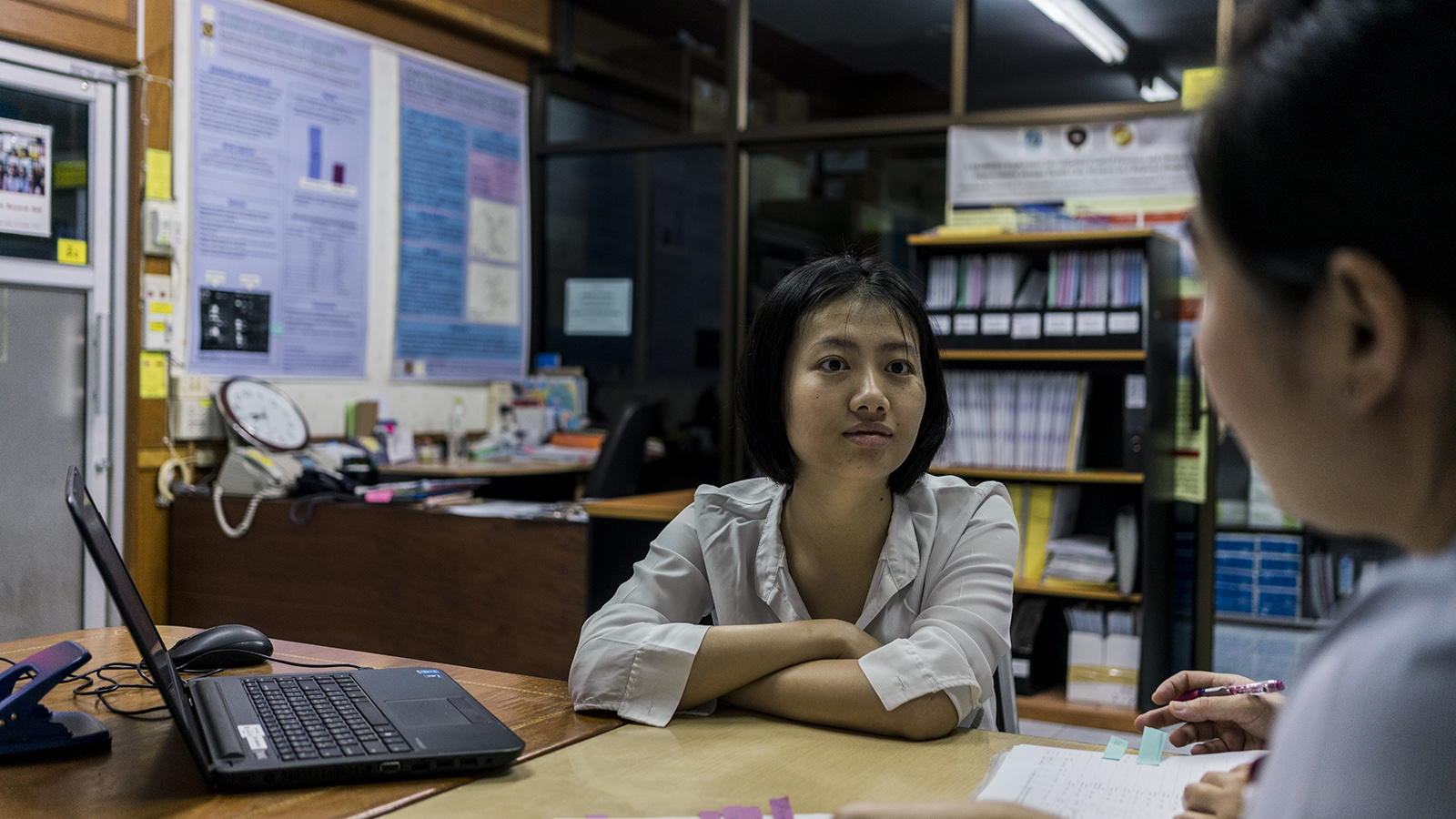
At MORU she met Dr Direk Limmathurotsakul, who became her supervisor and mentor. Under his guidance, she worked on a research project to evaluate the accuracy of diagnostic tests for melioidosis, an infectious disease endemic in North-East Thailand for which ‘the gold standard’ diagnostic test was far from perfect.
"I got really interested in the methodology," she says, "so we looked into applying a similar methodology but adapted for scrub typhus, another endemic disease in tropical countries. That’s how I picked up my interest in medical statistics and decided to apply for a Master’s to learn more about it.
"That year was very interesting for me as an exploration of different fields, different parts of science. I came from a quite broad interest in general research and started to explore what kinds of things I particularly enjoyed doing."
Now that she had a research idea – looking at the accuracy of diagnostic tests for scrub typhus – and a scientific area she wanted to focus on – statistics – Cherry’s next step was to find funding.
Her supervisor suggested the Wellcome Master's Fellowship in Public Health and Tropical Medicine (now called the International Master’s Fellowship) which supports fellows to set up their research careers through a 12-month Master’s and a 18-month research project.
"It was my very first application for a fellowship and I got enormous support from Dr Limmathurotsakul," she says.
"From doing several drafts, to reassessing and rewriting, I learned a lot in terms of how to shape my ideas in a more precise direction, how to budget my research project and what kind of resources I would need to carry out the work.
"When I got the fellowship it was pure happiness and excitement because it meant a new page in my career."
Cherry moved to the UK to do her Master’s at the London School of Hygiene and Tropical Medicine (LSHTM). The prospect of moving to a new country naturally made her nervous. "I wasn’t sure if I could make friends or if I would have social shock, so that was worrying."
But she found she was one of many international students with the same desire to explore new places and meet people. "We were all excited about exploring London during our free time so we hung out a lot. I didn’t feel lonely or homesick during the whole year."
Studying at the LSHTM opened a world of new ideas for Cherry. At a weekly global health seminar she got to hear senior researchers across the field talk about their work. "That was inspiring. They got me really passionate about research, especially in infectious diseases, and how important it is to impact and change practices in low- and middle-income countries."
Learning from her colleagues was also inspiring. "Everyone was from different backgrounds. Some were physicians, others were social scientists, others mathematicians. I learned a lot from them."
One colleague in particular, a neurologist, gave Cherry a new perspective on research. "As a clinician, she sees things very differently from me – from a very practical point of view. It felt like something I should learn about."

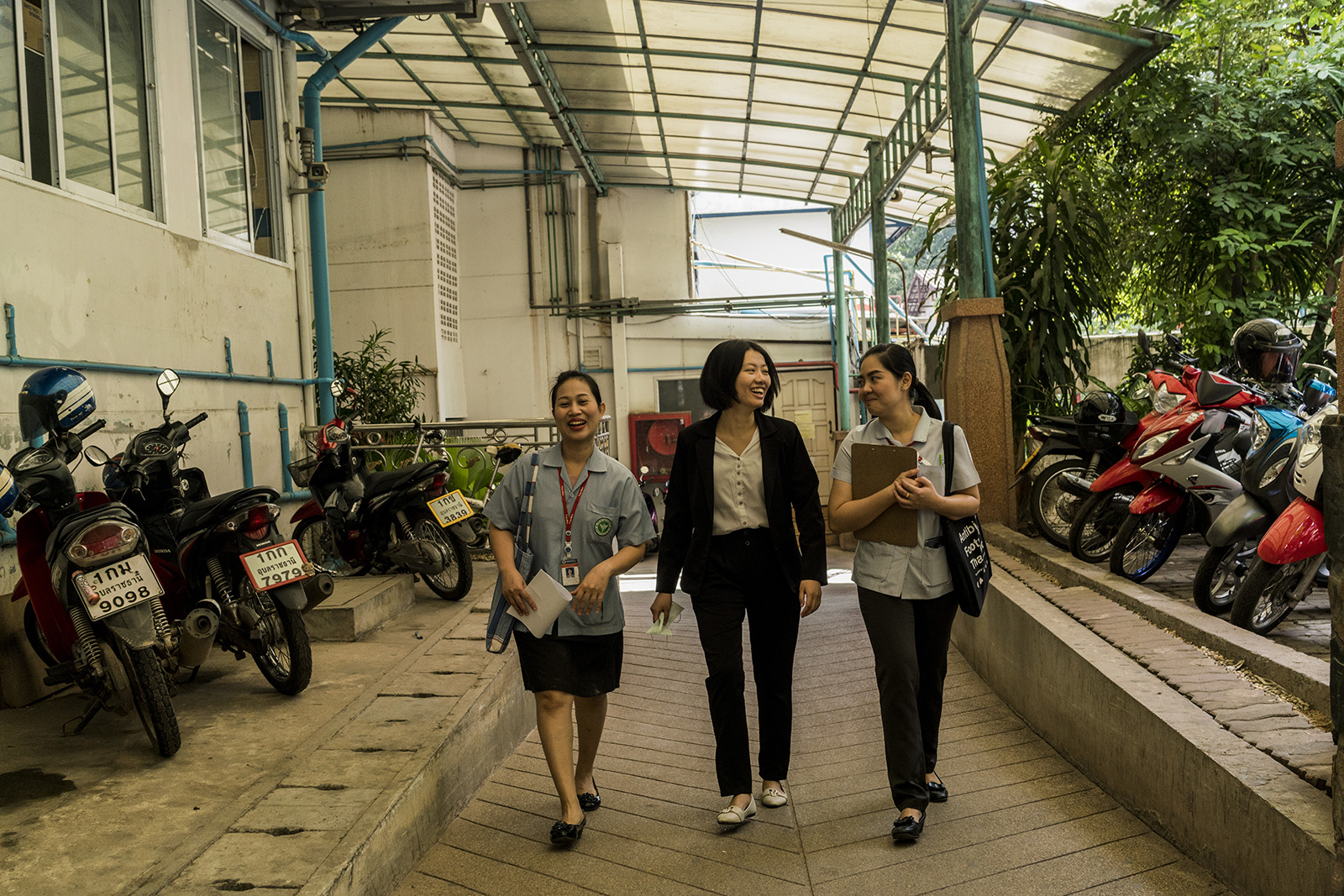
The Master’s proved challenging, as statistics was a new topic for Cherry. "There were a lot of mathematical notations I had never seen before," she says. "But the environment of the school, in terms of supervision, tutoring and classmates, was very supportive."
After her year in London, Cherry went back to MORU in Bangkok to work on her research project. Always eager to learn more, she got involved in two other research projects under the supervision of Dr Limmathurotsakul.
With her training in statistics, Cherry found she could apply her skills to different diseases and study designs, something she very much enjoyed.
"I wanted to explore my interests in different areas in infectious diseases. There was a bit of challenge in terms of time management, but I do actually enjoy working on different projects because I can learn different things from them. I see research as more than just statistics. Research is knowing more about other things, like the social aspect of research, its impact and the study design."
One of her side projects was looking at antibiotic resistance in North-East Thailand. "I realised that antibiotic-resistant infection is something that is really important in low- and middle-income countries but is not really looked at in detail. I got interested in the topic, and that’s what led to my training fellowship."
Mahidol University International College, Thailand
Mahidol Oxford Tropical Medicine Research Unit, Thailand
Mahidol Oxford Tropical Medicine Research Unit, Thailand
London School of Hygiene and Tropical Medicine
Mahidol Oxford Tropical Medicine Research Unit, Thailand
University of Oxford
"I had a fantastic experience with my Wellcome Master’s fellowship," Cherry says. "I think funding for students or researchers at their early career stage is still a big challenge in the region [South-East Asia]."
As she was finishing her Master’s, she looked into possible Wellcome funding for her next career stage and found the Training Fellowship in Public Health and Tropical Medicine (now called the International Training Fellowship). The fellowship was to support a research project and postdoctoral research training, which for Cherry meant a PhD.
The idea for her research proposal came from the antibiotic resistance work she had been involved in. With her supervisor, she shaped it into a project that could have an impact and meet her training needs.
"We discussed a lot about how I could make use of my statistic skills and my experience, as well as learn more things during my training fellowship."
That meant bringing in a second supervisor with expertise in statistics who could help Cherry build that set of skills. And it meant building a clinical component into the project, something Cherry had been interested in since her Master’s in London.
"I’m very fortunate to have a mentor at this early career stage who really knows how to guide me, who I can work with, who is very open-minded and can lead me in the direction that I want to go."
After being awarded the training fellowship, Cherry got a PhD placement at the University of Oxford to continue her formal training. She chose Oxford for its close connections with her research institute in Bangkok – MORU is a study site of the university. Cherry has to travel to the UK for mandatory courses, but her research is mainly based in Thailand.

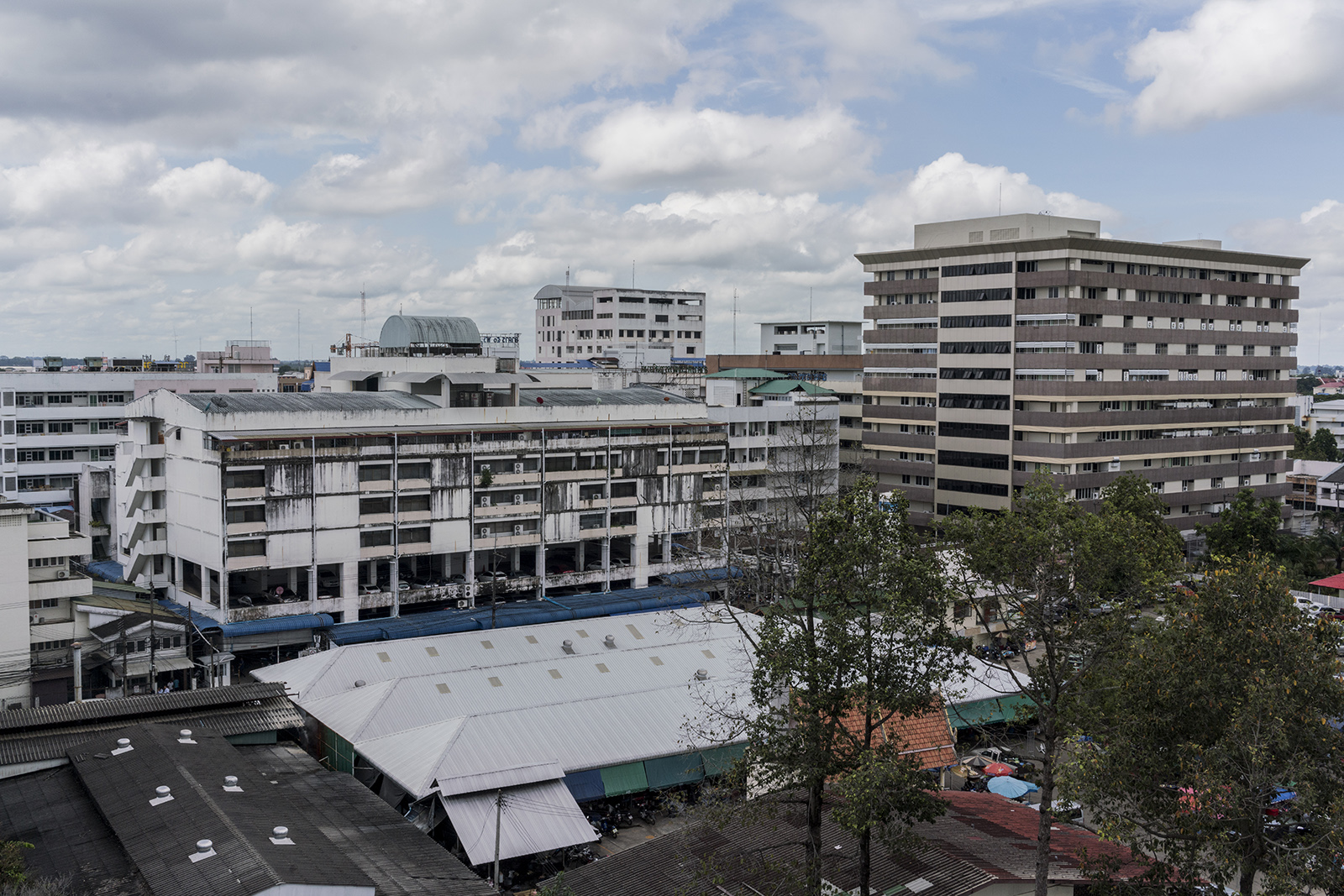

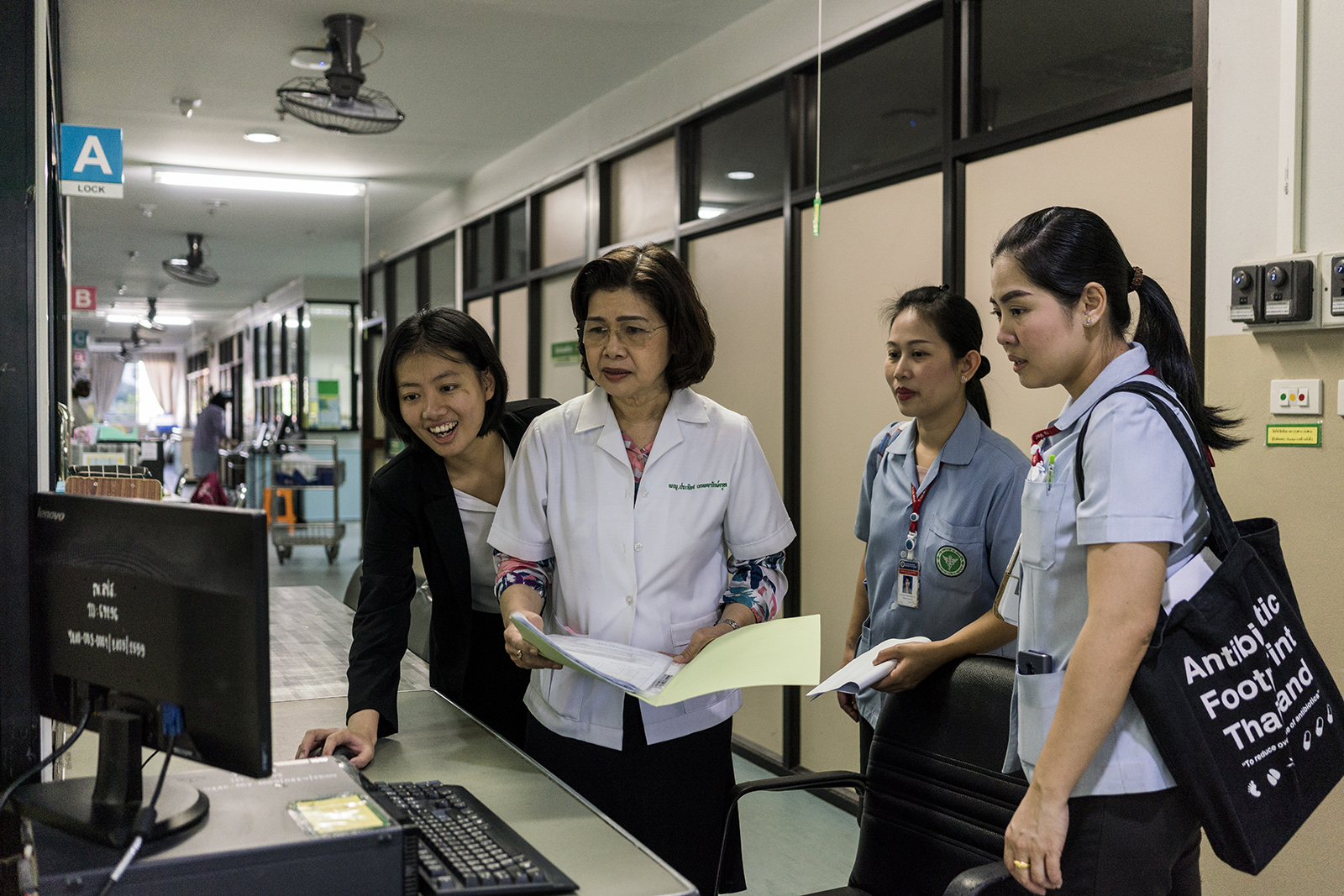

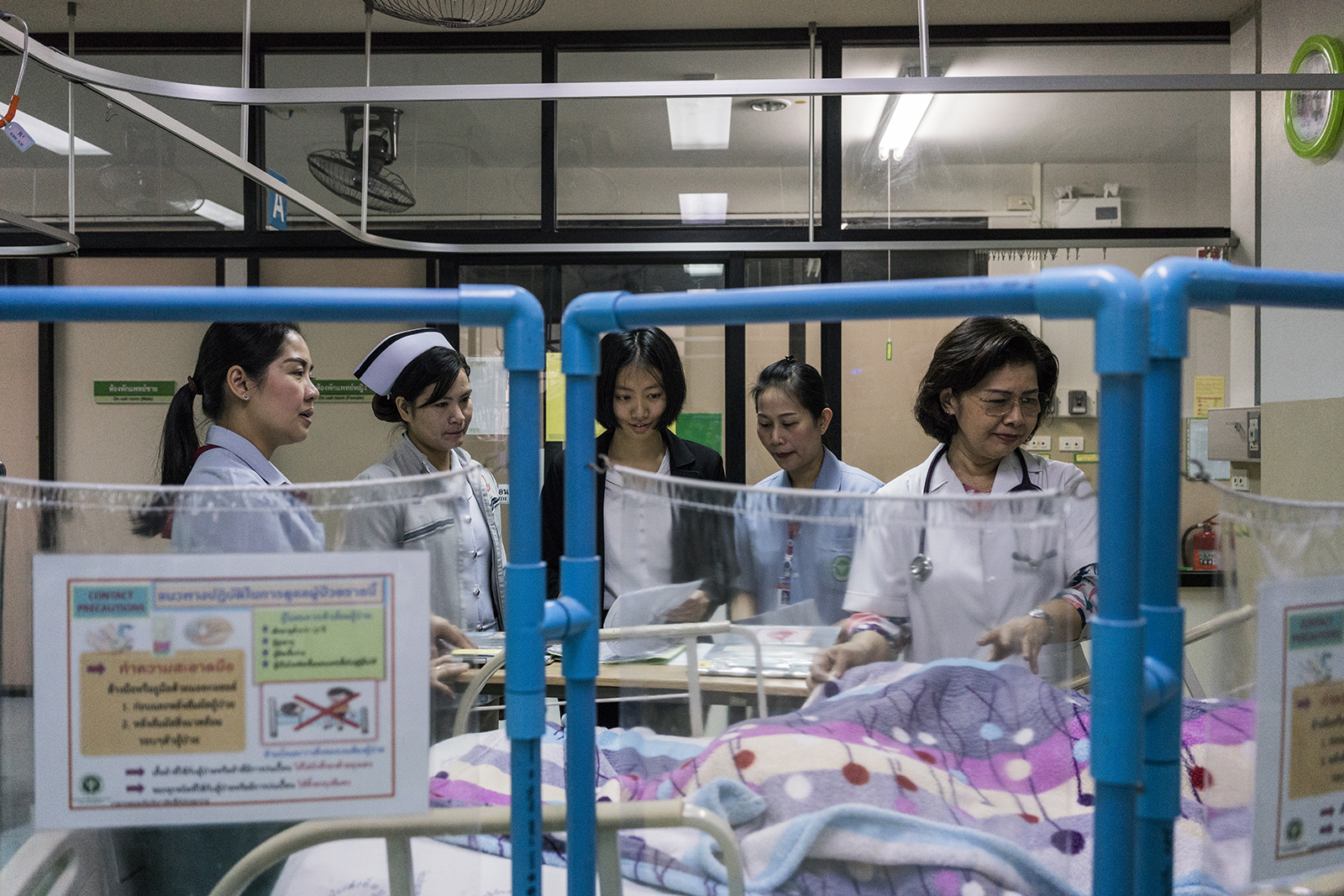
Although the PhD is more challenging than a Master’s, Cherry thinks she’s getting more support during this stage of her career.
"I feel this is unique to a PhD. I can be quite independent, but at the same time I have a great team who I can go to and consult when I have some challenges."
As part of her project she’s looking into health burdens caused by antibiotic resistance. She’s collaborating with the Sunpasitthiprasong Hospital in Ubon Ratchathani in North-East Thailand, where she works closely with a team of research nurses.
Her work is also supported by other physicians, nurses, the infectious control team and the microbiology laboratory staff at the hospital. Later in the project, she’ll be expanding her research to other hospitals in South and South-East Asia.
"I’m now responsible not only for myself, but for the project and the research team. In that sense it’s a new challenge, but it’s fun – it’s not just me and a computer. I get to talk to different people and understand how they think, how data is generated and what kinds of different things I should look for when I’m doing my analysis."
This part of her project requires new skills. "Building up networks and good communications with different stakeholders is certainly something that I’ve learned in the past year, especially knowing the culture in the environment I’m working in."
Working closely with clinicians, and seeing and enrolling patients herself into the study, are helping Cherry see how her work could make a difference.
"The things that excite me most about this project are that I can see the impact and I have an aim to work towards to. I feel it might already be changing the practices or thinking of the people here [in the hospital].
"It intensifies what I’m hoping the project will achieve – improving healthcare in the region."
Cherry is already thinking about and planning next steps. “I feel that research is a career that I really want to go for.
"After this fellowship and the PhD, I can get more training and experience through a postdoc or research project on infectious diseases, but bringing in other types of study designs. Basically, preparing myself to be an independent researcher, with a small research team.”
How do you go about building all the skills you need at the start of your research career? Cherry found a mentor to guide her through this journey.
